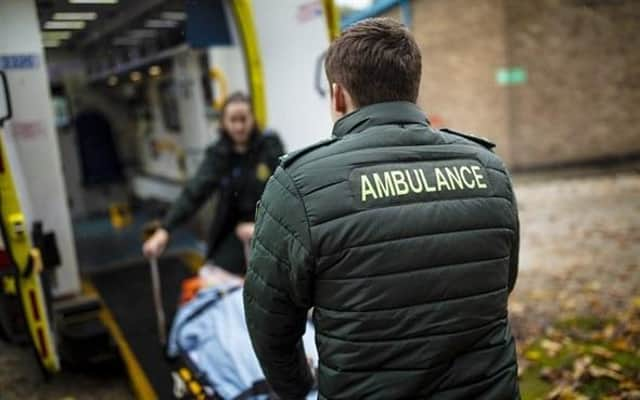'Unprecedented' delays lead to a rise in serious incidents, say East Midlands ambulance chiefs


East Midlands Ambulance Service (EMAS) says there has been an increasing number of serious incidents relating to delayed responses.
A serious incident is medically known as an act or omission of care which resulted in death or avoidable injury resulting in serious harm.
Advertisement
Hide AdAdvertisement
Hide AdSenior ambulance service staff hold twice weekly meetings to see if a delayed response led to an incident, and where it is accepted one has taken place it is recorded and reported to NHS England.
It includes incidents where the call was correctly coded and dispatch protocols have been followed, but where there were no available ambulances to send sooner.
EMAS says the issue is echoed across the country in the ambulance sector.
Association of Ambulance managing director Martin Flaherty said: "We must recognise the never-ending hard work and dedication of the NHS ambulance sector's staff who are doing their utmost to continue responding to patients when they need us most.
Advertisement
Hide AdAdvertisement
Hide Ad"However, the current pressures on the ambulance service are unprecedented and have been building for some time. The ultimate safety net for the NHS is the fact that patients who are severely ill or injured can access an emergency ambulance in a timeframe appropriate to their clinical condition, but we know that safety net is now compromised because of pressures throughout the health and social care system.
"The single biggest issue impacting the ambulance sector's ability to respond appropriately is unprecedented delays handing over patients at emergency departments.
“We have been raising these concerns for months and published the first ever report into the harm being caused in November 2021. Since then the situation has continued to deteriorate and is having an intolerable impact on our patients and our staff.
"The answer is not simple but it is straightforward. Hospitals and their supporting system partners must find a way of creating and staffing additional capacity to take ambulance patients into the hospital as soon as the ambulance arrives.”
Advertisement
Hide AdAdvertisement
Hide AdThe association is calling for collaboration with ambulance leaders by the new Secretary of State for health, and a push by the NHS to bring change.
It follows a letter sent by NHS England to all hospitals with emergency services.
Mr Flaherty added: “We hope the recent letter will have a positive effect in helping eliminate these delays. When that happens, the ambulance service will be able to revert back to delivering the consistent performance that the public has rightly come to expect.”
Reviews into the incidents include looking into the 999 call to check it was categorised properly, actions taken by ambulance dispatchers in the control room and the ambulance resources available to attend the scene at the time of the incident.If it is established the incident was due to the delay it is recorded as a serious incident and reported.
Advertisement
Hide AdAdvertisement
Hide AdWhere an incident is reported cases are investigated and the patient’s family are asked to contribute. Investigations include factors from the number of ambulances available to hospital and handover delays which may affect response times. Outcomes are then shared with the family, commissioners and regulators of the Care Quality Commission.